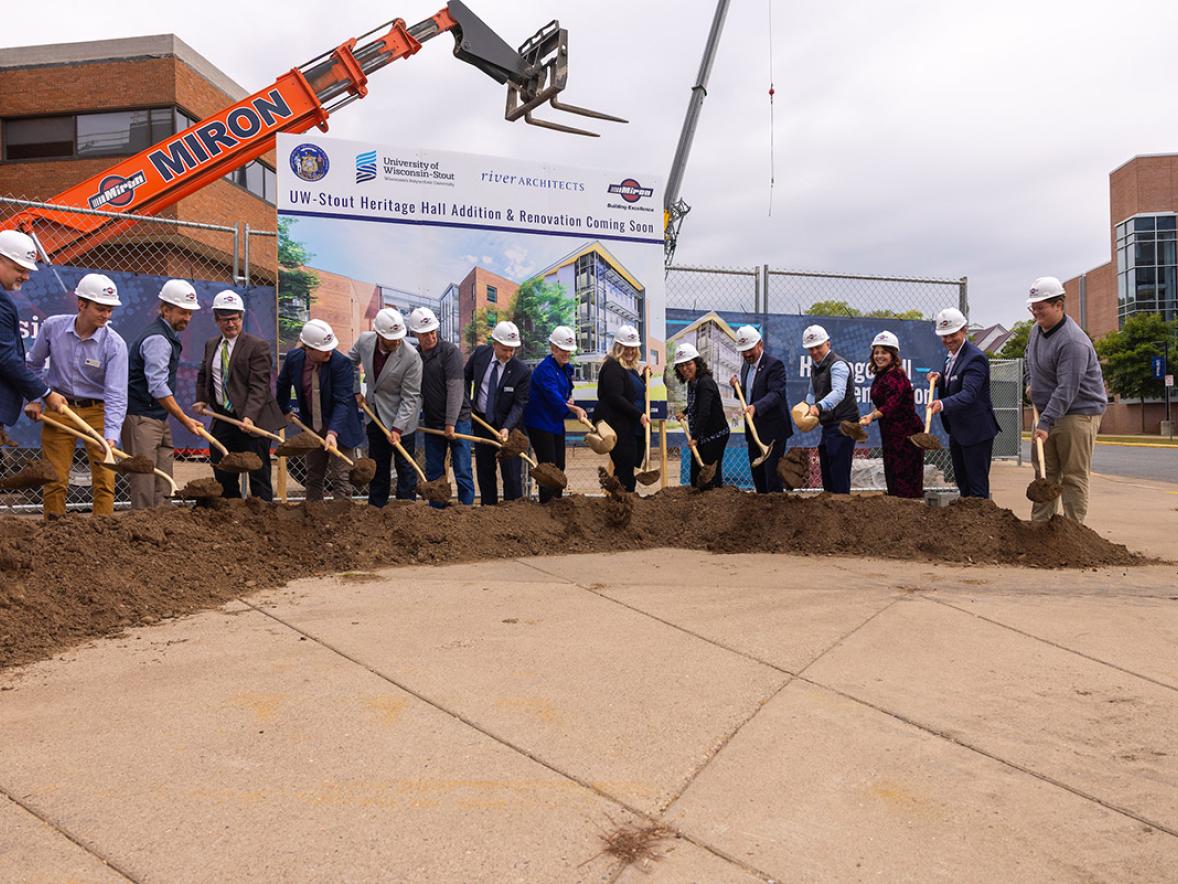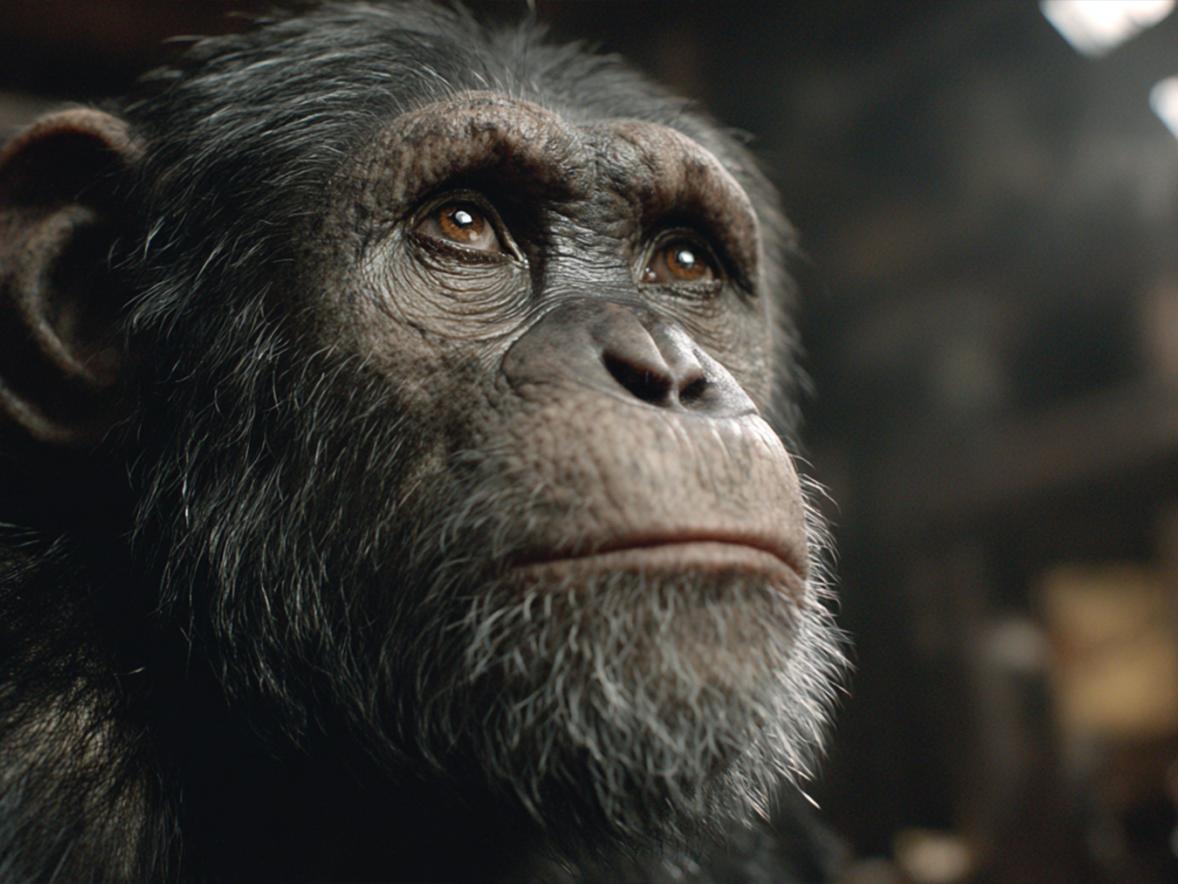Tucked right off Highway 29 near Chippewa Falls is a small family farm bursting with scent and color in June and July. Pondview Lavender Farm, owned by UW-Stout operations and management Lecturer Bob Sworski, welcomes folks to pick lavender during the harvest season.
Recently, an agricultural robot helped to advance Pondview’s lavender harvesting process as well, as part of cross-disciplinary research led by UW-Stout engineering Professor Yuan Xing and applied social science Program Director Tina Lee. Their project, A HumanCentered Collaborative Approach to Designing an Energy-Efficient Wireless Sensor Network, aims to advance Wisconsin’s agricultural system.
The project includes several elements to help farmers make informed decisions about their crops or livestock, including creating an ease of automation for specialty crop farmers, like Sworski.
The Amiga robot, by Farm-ng, is a battery-operated micro-tractor designed for 24/7 automation in specialty crop farming. The all-terrain, all-weather robot can be used as a scouting robot in the field, programmed for pest and disease control; for weeding or harvesting of specialty crops, such as lavender or berries; and to capture real-time images at ground level, with a mounted vision sensor camera.
The Amiga can be trained to learn the parameters of a field. It can hold up to 1,000 pounds, saving a significant amount of labor for workers, Xing said. The agricultural robot can travel 5 1/2 mph, fully loaded for four to five hours, or eight hours on light duty. Its ground clearance is about two feet, and its height and width can be adjusted as needed. It is also equipped with a mini-PC for data collection.
The cross-disciplinary project received a two-year, $175,000 Universities of Wisconsin Innovation Grant. Additional research is being conducted by Lee, who is leading support for a livestock farm at River Falls, where the team plans to install cow manager sensors and create an AI livestock monitoring system. Also involved in the research are engineering professors Cheng Liu, sensor hardware implementation, and Abhishek Verma, UAV (unmanned aerial vehicle) system design, and UW-River Falls Professor Bob Zhiwei Zeng, agricultural machinery design.
AI supporting specialty crop farmers
Xing is working with Liu and students Aaron Post and Jake See to develop a fully automatic system with an individual Amiga artificial intelligence brain, designed on the NVIDIA Jetson Xavier processor. Post is a computer and electrical engineering major from Sussex, and See is an applied mathematics and computer science major from Singapore.
“The AI brain configuration is ongoing, and when configured, we are considering installing the brain on the Amiga and activating the fully automatic self-driving and vision inspection function at Pondview, which can further save labor,” Xing said.
See, who has a concentration in artificial intelligence, is Xing’s research assistant and is helping to acquire new AI/machine learning knowledge and tools to develop models for industrial applications and contributing to scientific papers, such as IEEE Xplore. He hopes the new technology can allow specialty crop farms the ability to produce higher-quality crops and become more efficient and cost-effective.
“Automation and data analysis can be used to improve the health of crops and to lower labor, time and money costs,” he said. “Sensors that collect data about soil properties and weather conditions can help farmers make more optimal decisions. Image analysis can help identify disease within crops or monitor livestock. Robotic automation can make the planting or harvesting process easier, allowing farmers to reallocate time and labor to other efforts, such as expanding their farms or other elements of their business.”
See is naturally inquisitive and finds the world to be fascinating and beautiful. “I think math and computer science provide a lens through which I can explore, appreciate and enjoy this beauty in our world. They also provide a fun platform where I can create useful things to engage with people and our surroundings, ideally to benefit society,” he said.
Although this was See’s first time working with the Amiga robot, he has been interested in programming since he was 7 years old, when he joined a robotics club in school. He has competed in national and international robotics competitions.
“AI is an incredibly powerful tool that has seen an explosion in use and development in recent times. It also intersects with many other personal interests of mine –understanding how the brain works, human behavior and learning, visuals, optimization and more,” he said.
His plan is to one day work as an AI researcher or software engineer focusing on computer vision or machine learning theory to contribute to the study and advancement of technology.
UW-Stout’s Robert F. Cervenka School of Engineering has four undergraduate programs and one master’s program in engineering, as well as an engineering technology degree. The applied social science program is housed in the College of Arts and Human Sciences.
From engineering to communication and counseling, manufacturing, marketing and design, construction, supply chain and more, UW-Stout is preparing graduates to meet the needs of a rapidly evolving workforce by embedding AI training in all of its degree programs. UW-Stout’s AI Fellows, centers, and services collaborate with community, business and industry partners to help Wisconsin leverage AI-driven solutions that put it ahead of the curve.







